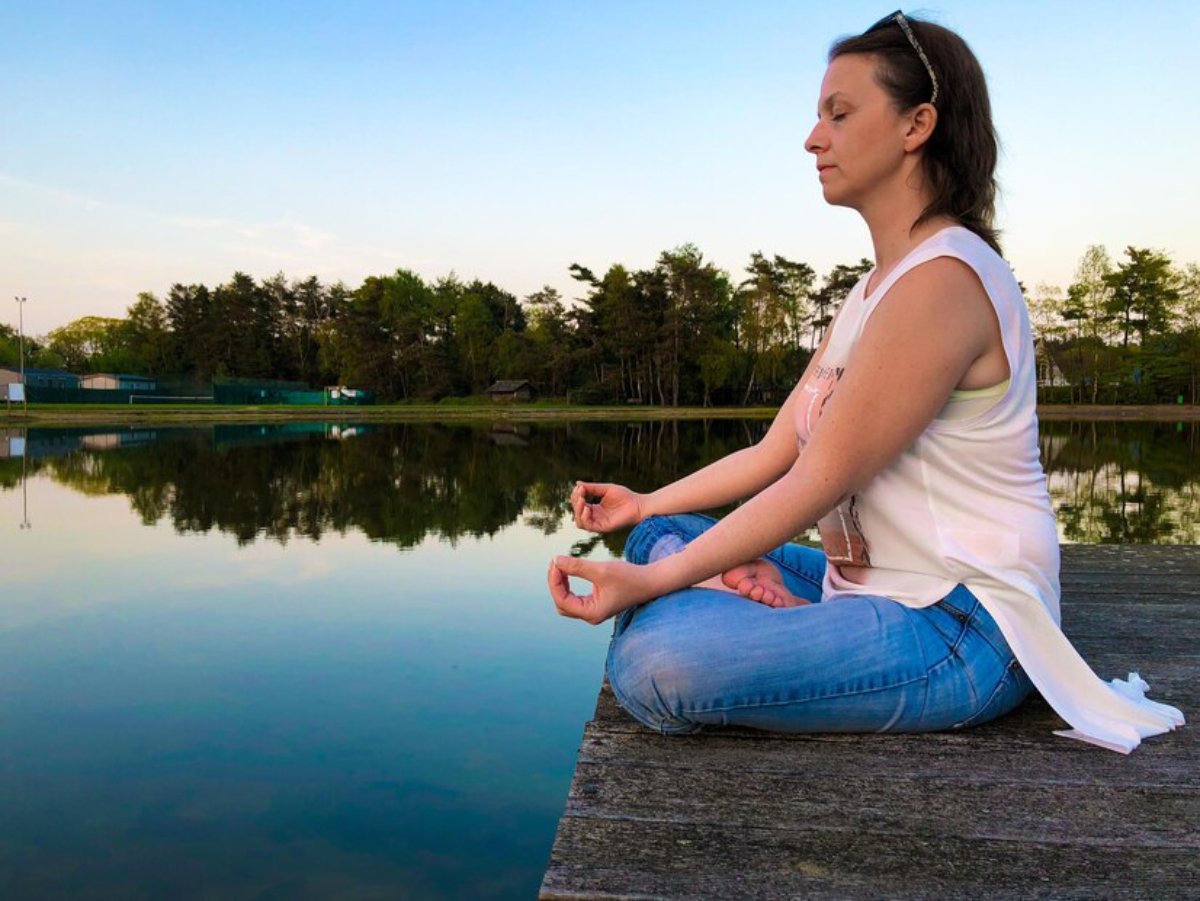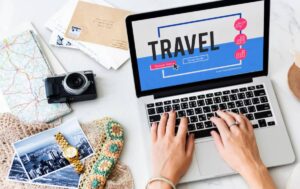The Travel Blog

Self-Care Rituals for Remote Workers
Working remotely while travelling the world is the dream, right? No office politics, no set dress code — just your laptop, strong coffee, and new places to explore. But behind the photos of beach desks and city cafés is a truth that’s easy to ignore: remote work without good self-care can burn you out fast.
Life on the move brings hidden stress. Your schedule changes often. Your body clock shifts. It’s easy to skip meals, miss sleep, or keep working long past sunset. That’s where wellness on the move comes in — not as a bonus, but as your foundation.
In this guide, you’ll learn real, doable self-care habits. Whether you’re based in Bali, Berlin, or Buenos Aires, these tips will help you take care of your body, mind, and spirit — so you can enjoy the freedom that drew you to this lifestyle in the first place.
Why Remote Workers Need Self-Care More Than Most
Freedom Without Structure Can Backfire
Working remotely lets you design your day. But too much flexibility, with no structure, can lead to stress. Without office routines, things like sleep, food, or focus often fall apart.
Constant Change Is Tiring
New time zones. New beds. New grocery stores. These little changes add up and can leave your mind tired and your body stressed.
You Might Not Notice It Happening
Burnout for remote workers doesn’t always show up as stress. It can feel like:
- Low motivation
- Brain fog
- Emotional ups and downs
- A lack of joy in travel or work
Sound familiar? You’re not alone.
The Four Pillars of Self-Care on the Move
Let’s simplify. Self-care doesn’t have to be fancy. Just focus on these four areas:
- Mind
- Body
- Work
- Connection
We’ll break down how to care for each, with simple actions you can start today.
1. Mind: Mental Health Travel Habits
Create Small Digital Detox Moments
Screens take up more space in your life than you think. Try these:
- Put your phone away during meals
- Take a tech-free hour every morning or night
- Use “Do Not Disturb” mode when working or resting
Even one screen-free hour a day makes a difference.

Practice Short Mindfulness Habits
You don’t need a 30-minute meditation to be mindful. You just need a moment to pause.
Try:
- Noticing your breath while walking
- Naming five things you can see and hear
- Sitting still for 2 minutes with your eyes closed
Apps like Headspace or Insight Timer offer free short meditations.
Ease Travel Anxiety with Checklists
New places bring unknowns. A quick checklist can lower stress.
Have a go-to routine when you land somewhere new:
- Get a SIM card
- Find a grocery store
- Save local emergency numbers
- Check where the nearest clinic or hospital is
Doing this early helps you feel safe and settled.
2. Body: Move, Sleep, Nourish
Make Sleep a Priority
Remote work lets you choose your hours. That’s good — unless you stay up until 3 a.m. every night.
Protect your sleep with:
- A wind-down routine
- An eye mask and earplugs
- Going to bed at the same time most nights
Avoid caffeine and screens 2 hours before bed. It helps more than you’d think.
Move in Small Ways Every Day
You don’t need a gym. You just need to move.
Try:
- A walk after lunch
- 10 minutes of stretching in the morning
- Using stairs instead of lifts
- YouTube yoga or fitness videos
Movement clears your head, boosts your mood, and fights fatigue.
Eat What Feels Good
That doesn’t mean only salad. It means listening to your body.
- Include fruit and veg every day
- Stay hydrated (carry a water bottle)
- Don’t skip meals when busy
Pack snacks like nuts, protein bars, or fruit for travel days.
3. Work: Protect Your Focus and Energy
Set Boundaries for Work Time
Just because you can work all the time doesn’t mean you should.
- Set a “shut-down” time each day
- Don’t check email in bed
- Choose a workspace that’s not your bedroom
Use tools like Focus Keeper or Forest to avoid distractions.
Take Breaks Before You Need Them
Waiting until you’re tired is too late.
Try:
- A 5-minute walk every hour
- Pomodoro method: 25 mins work, 5 mins rest
- Stretching after every video call
Tiny breaks = big energy boost.
Celebrate Small Wins
You don’t have an office team to cheer you on, so cheer for yourself.
- Keep a “done” list, not just a to-do list
- Treat yourself after big projects
- Journal of voice note your wins each week
Acknowledging progress keeps you motivated.

4. Connection: Emotional and Social Wellness
Keep in Touch with Your People
Even if you’re far from home, connection matters.
- Schedule regular calls with loved ones
- Send photos or voice notes
- Plan virtual movie nights or game nights
Loneliness fades when you feel remembered and included.
Join Local Communities
New city? Don’t stay in your bubble. Look for:
- Coworking spaces
- Local language classes
- Facebook groups for expats or digital nomads
- Meetup events
Talking to new people gets easier the more you do it.
Check In with Yourself
Your connection to others starts with your connection to you.
- Ask, How do I feel today?
- Write it down, even if just one sentence
- Allow space for sadness or homesickness when it comes up
Being honest with yourself is a form of self-care, too.
Self-Care Starter Checklist
Print this, save it, or screenshot it. Use it as a weekly reset.
- Did I move my body today?
- Did I eat something fresh and colourful?
- Did I take a screen-free hour?
- Did I sleep well this week?
- Did I connect with someone I care about?
- Did I pause to breathe or reflect?
- Did I set any boundaries around work?
Even ticking off three or four can make a big difference.
Conclusion: Self-Care Isn’t a Luxury — It’s a Life Skill
Remote work gives you freedom. Travel adds adventure. But without care, both can wear you down. That’s why self-care matters most when your life looks the most exciting.
By weaving simple habits into your daily life — moving more, sleeping well, staying connected, setting work limits — you create a system that supports you, no matter where you are.
You don’t need perfection. Just small steps, taken often.









